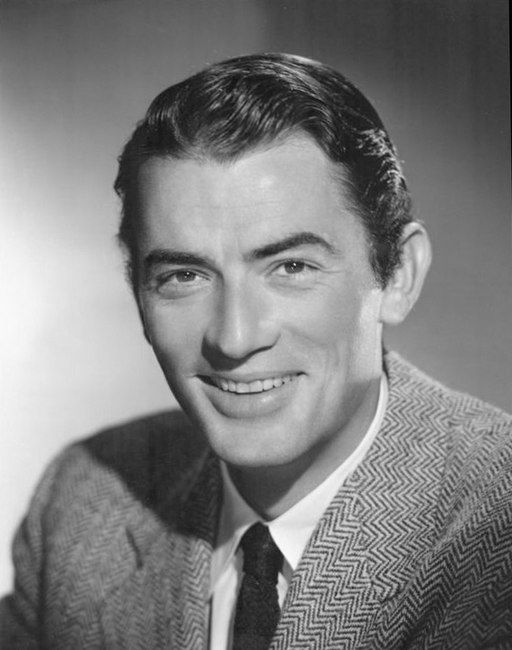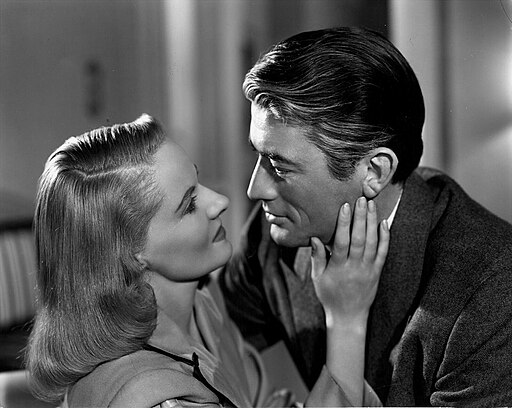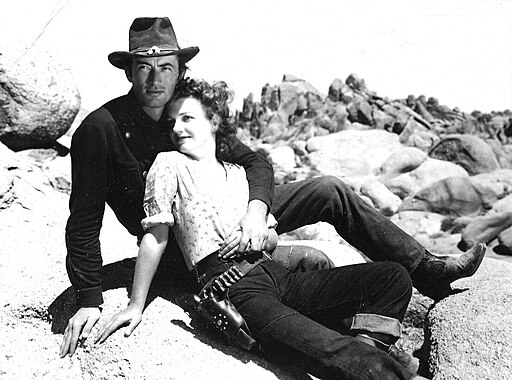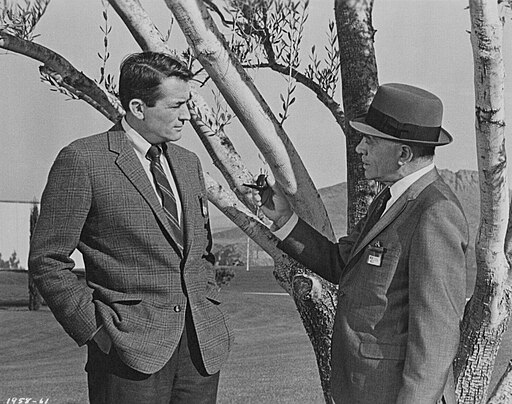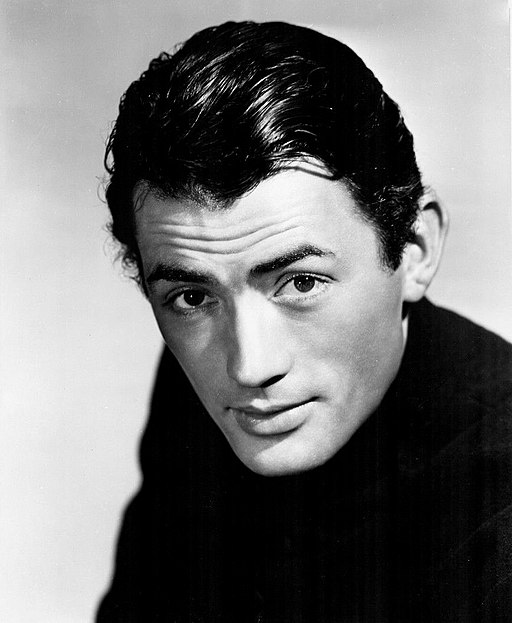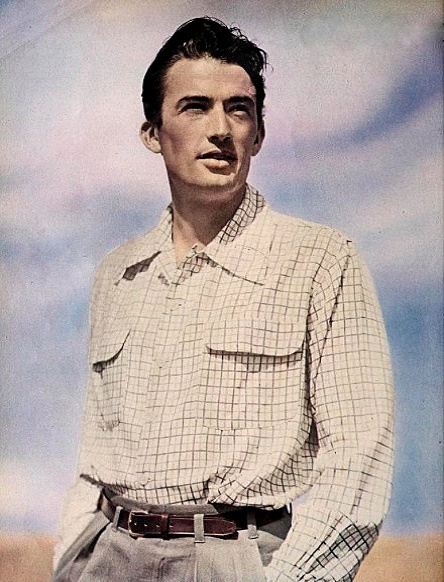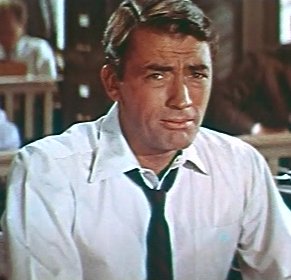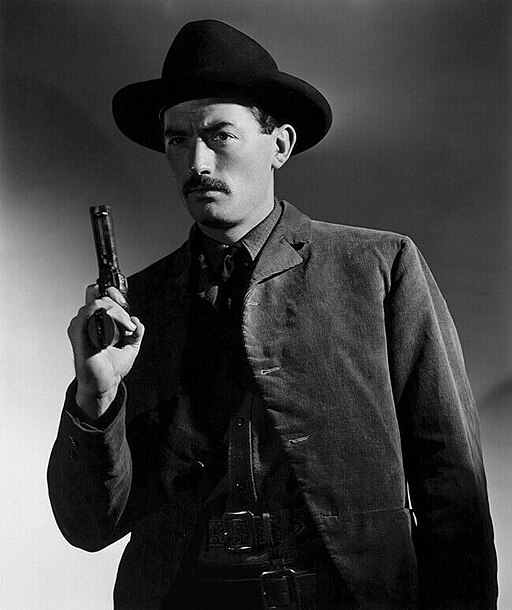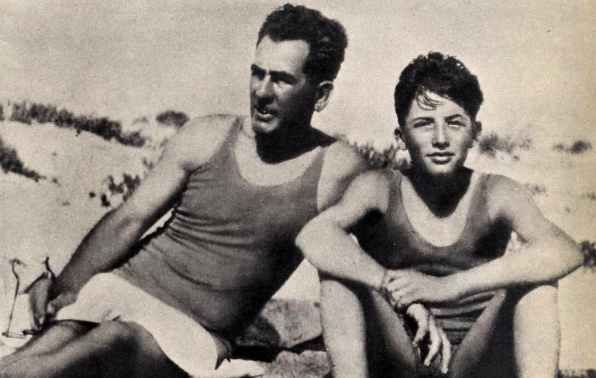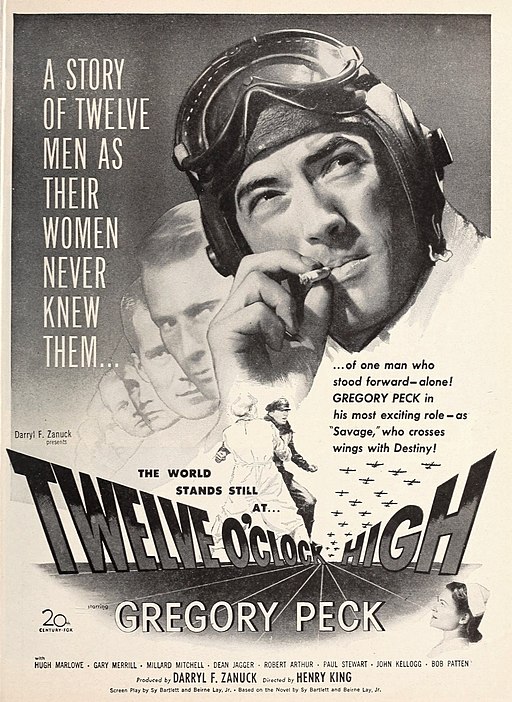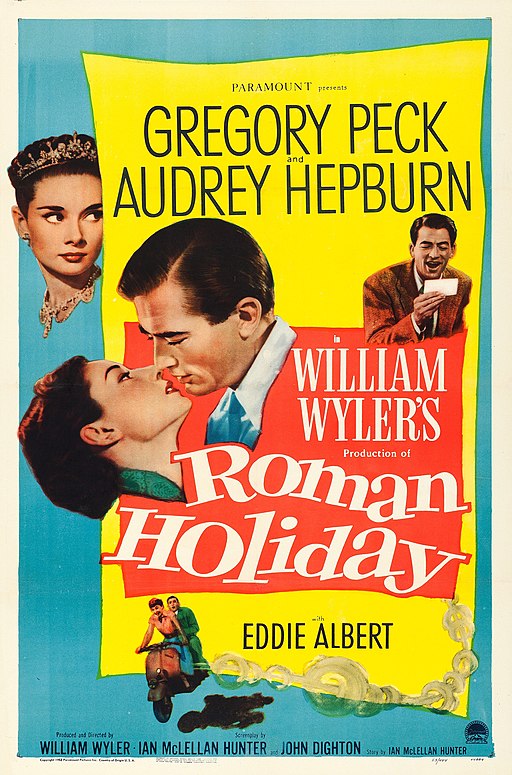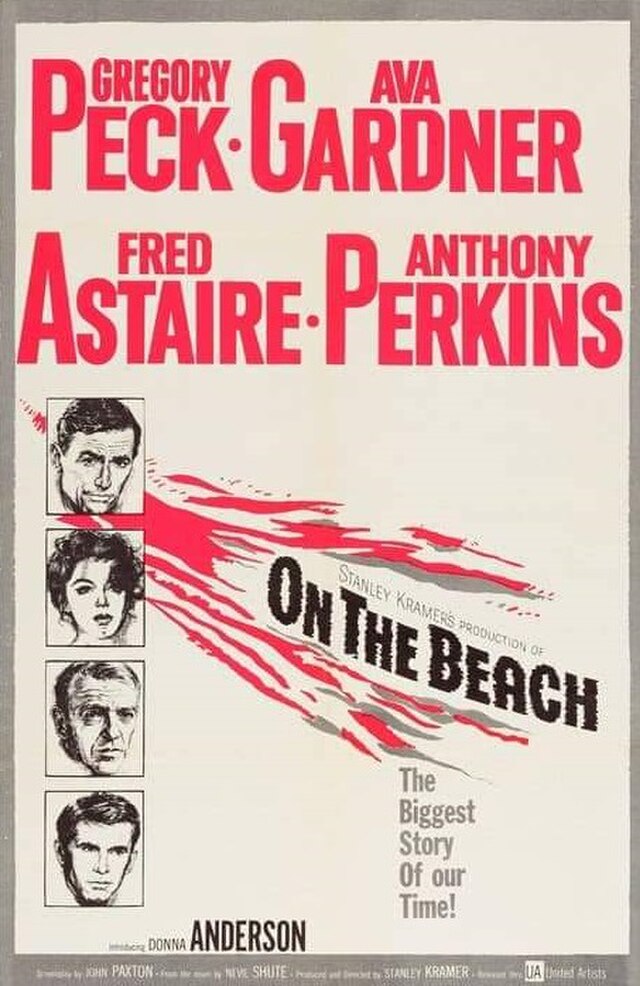Gregory Peck
back| Full Name | Eldred Gregory Peck |
| Stage Name | Gregory Peck |
| Born | April 5, 1916 |
| Birthplace | La Jolla, California, USA |
| Died | June 12, 2003 |
| Buried | Cathedral of Our Lady of the Angels in Los Angeles, California |
| Married to | Greta Kukkonen (m. 1942; div. 1955) - Veronique Passani (m. 1955; his death 2003) |
| Children | Jonathan Peck (from his first marriage, who died by suicide in 1975), Stephen Peck, Carey Paul Peck, Cecilia Peck, and Anthony Peck. |
| Notable films | To Kill a Mocking Bird (1962) - Roman Holiday (1953) - Spellbound (1945) - The Guns of Navarone (1961) - Moby Dick (1956) - Cape fear (1962) - MacArthur (1977) |
Gregory Peck
Movie Icon of Integrity and Principle
Gregory Peck's career spanned over several decades, during which he became known for his powerful performances, dignified presence, and deep, resonant voice.
He was not just a major Hollywood star but also a respected figure for his humanitarian efforts and received the Presidential Medal of Freedom in 1969 for his humanitarian work.
Related
Gregory Peck (1916 - 2003)
Biography and Career Overview
Gregory Peck, born Eldred Gregory Peck on April 5, 1916, in La Jolla, California, emerged as one of the most prominent and respected actors in Hollywood history. His stately presence, deep, resonant voice, and ability to convey complex emotions with subtlety and depth made him a favorite among audiences and critics alike.
Early Years and Education
Peck's early life was marked by a blend of modesty and ambition. The son of a pharmacist and a housewife, Peck was raised in a Catholic household, which influenced his moral and ethical values. His parents divorced when he was young, and he was sent to live with his grandmother. He attended St. John's Military Academy in Los Angeles and later went on to study at San Diego State University. Peck initially aimed to be a doctor but was drawn to acting during his time at the University of California, Berkeley, where he was involved in several productions. His towering 6-foot-3-inch stature, handsome features, and natural acting ability made him a standout in college plays, leading him to pursue acting professionally.
Path Towards Success
Peck moved to New York City to study acting at the Neighborhood Playhouse, supporting himself with odd jobs. His Broadway debut came in 1942 with "The Morning Star." Though the play was not a success, Peck's performance caught the attention of Hollywood. His film debut was in the movie "Days of Glory" (1944), but it was his role in "The Keys of the Kingdom" (1944) that earned him his first Academy Award nomination and established him as a leading actor.
Hollywood Stardom
Throughout the 1940s and 1950s, Peck solidified his reputation with a variety of roles that showcased his versatility, from romantic leads to complex, brooding characters. His performances in "Spellbound" (1945), "The Yearling" (1946), and "Gentleman's Agreement" (1947), for which he received another Oscar nomination, were critically acclaimed. However, it was his portrayal of Atticus Finch in "To Kill a Mockingbird" (1962) that became his most iconic role, earning him an Academy Award for Best Actor. This role, in particular, seemed to reflect Peck's personal integrity and commitment to justice.
Personal Life and Passions
Off-screen, Peck's life was as rich and varied as his film career. He married Greta Kukkonen in 1942, with whom he had three sons, but the couple divorced in 1955. He remarried the same year to Veronique Passani, a Paris news reporter, and they had two children. His marriage to Veronique was a long and happy one, lasting until his death.
Peck was known for his humanitarian work and liberal political views, actively participating in various causes. He was a vocal opponent of the Hollywood blacklist era, a supporter of the Civil Rights Movement, and served as the president of the Academy of Motion Picture Arts and Sciences.
Death and Legacy
Gregory Peck passed away in his sleep at his Los Angeles home on June 12, 2003, at the age of 87. The cause of death was attributed to bronchopneumonia. His loss was mourned worldwide, and he was remembered not only as an exceptional actor but as a man of great integrity and kindness. Peck was buried in the Cathedral of Our Lady of the Angels in Los Angeles, as per his wishes.
Gregory Peck Oscar Awards 1963:
Analysis of Gregory Peck’s Acting Style:
Gregory Peck's acting style is emblematic of the classic Hollywood era, characterized by a blend of understated grace, emotional depth, and authoritative presence. His performances were marked by a naturalistic approach that made his characters highly relatable and deeply human. Peck's style can be dissected into several key components that made him a distinctive and enduring figure in cinema.
Understated Grace
Peck's demeanor on screen was often calm and composed, exuding a natural charisma without the need for overt theatrics. This understated grace allowed him to command attention and convey complex emotions through subtle facial expressions and a nuanced use of his voice. His performances were never overdone; instead, they were measured and introspective, drawing the audience into the internal world of his characters.
Emotional Depth
One of the hallmarks of Peck's acting was his ability to express a profound emotional range while maintaining a semblance of stoicism. This was particularly evident in roles that required him to portray moral integrity and inner conflict, such as Atticus Finch in "To Kill a Mockingbird." Peck had a unique talent for revealing the vulnerability and strength of his characters, often through restrained emotional displays that hinted at a deeper turmoil or passion beneath the surface.
Authoritative Presence
Standing at 6 feet 3 inches with a commanding voice, Peck naturally embodied roles that required a figure of authority or moral fortitude. However, his physical presence was complemented by an inner warmth and empathy, making his authoritative characters feel human and accessible rather than distant or imposing. This combination of physical stature and emotional accessibility made him ideal for roles ranging from military leaders to caring fathers.
Moral Integrity
Peck's choice of roles often reflected his own values, with many of his characters embodying ideals of justice, integrity, and humanity. His portrayal of such characters was sincere and convincing, partly because these values resonated with his own off-screen persona. Peck's acting conveyed a sense of ethical conviction and moral responsibility, which resonated with audiences and contributed to his lasting legacy.
Versatility
Despite being best known for his dramatic roles, Peck's career also showcased his versatility as an actor, including performances in westerns, thrillers, and romantic comedies. His ability to adapt to various genres while maintaining his distinctive style is a testament to his skill and range as an actor. Even in lighter roles, Peck brought depth and substance, demonstrating his ability to balance charm and seriousness.
Memorable Quotes from Gregory Peck:
From His Films
- "To Kill a Mockingbird" (1962) as Atticus Finch:
"You never really understand a person until you consider things from his point of view... Until you climb inside of his skin and walk around in it."
"The one thing that doesn't abide by majority rule is a person's conscience."
- "Roman Holiday" (1953) as Joe Bradley:
"Rome, by all means, Rome. I will cherish my visit here in memory as long as I live."
- "Spellbound" (1945) as John Ballantine:
"I am accused of a crime I know nothing of."
- "The Guns of Navarone" (1961) as Capt. Keith Mallory:
"You think you've been getting away with it all this time, standing by. Well, son... your bystanding days are over! You're in it now, up to your neck!"
- "Moby Dick" (1956) as Captain Ahab:
"From hell's heart, I stab at thee; for hate's sake, I spit my last breath at thee. Ye damned whale."
Personal Quotes
- On his philosophy of acting:
"I put everything I had into it – all my feelings, all my heart and soul – I tried to live the part of every movie I made and I hope this came across onto the screen."
- On choosing roles:
"I just do things I really like to do. I'm not interested in a career for its own sake. I don't have any kind of master plan. I just find myself doing these things."
- On integrity:
- “Integrity is the essence of everything successful."
- On his approach to life and acting:
"Faith is a force, a powerful force. To me, it's been like an anchor, something that has kept me centered."
- Reflecting on his career and life:
"I've had my ups and downs, but I've had an adventure – and that's what life should be. An adventure."
Trivia
A] His Height:
Gregory Peck stood tall at an impressive height of 6 feet 3 inches (191 cm). His stature contributed significantly to his commanding presence on screen, making him an ideal choice for roles that required a figure of authority, dignity, and moral integrity.
B] Gregory Peck’s Iconic Glasses:
Gregory Peck's glasses, particularly those he wore while portraying Atticus Finch in "To Kill a Mockingbird" (1962), have become iconic in their own right. In the film, Peck's character wears a distinctive pair of tortoiseshell frame glasses, which added depth to his portrayal of the noble and morally upright lawyer in the racially divided town of Maycomb, Alabama. These glasses helped frame Peck's expressive eyes, conveying wisdom, compassion, and steadfastness—qualities that defined Atticus Finch's character.
The significance of these glasses extends beyond their on-screen role. They became so emblematic of the character and Peck's portrayal that they've influenced fashion and eyewear design. Recognizing the cultural and stylistic impact of this accessory, some eyewear companies have even produced collections inspired by Gregory Peck's glasses in "To Kill a Mockingbird," marketing them as "Atticus Finch" or "Gregory Peck" style frames. These glasses evoke a sense of timeless elegance and intellectual flair, appealing to those who wish to channel the classic aesthetic and moral gravitas that Peck brought to his role as Atticus Finch.
Awards and Recognition:
Academy Awards (Oscars)
- 1946: Nominated for Best Actor in a Leading Role for "The Keys of the Kingdom"
- 1947: Nominated for Best Actor in a Leading Role for "The Yearling"
- 1948: Nominated for Best Actor in a Leading Role for "Gentleman's Agreement"
- 1950: Nominated for Best Actor in a Leading Role for "Twelve O'Clock High"
- 1963: Won Best Actor in a Leading Role for "To Kill a Mockingbird"
Golden Globe Awards
- 1947: Won Best Actor in a Motion Picture – Drama for "The Yearling"
- 1963: Won Best Actor in a Motion Picture – Drama for "To Kill a Mockingbird"
- 1963: Received the Cecil B. DeMille Award for lifetime achievement
- 1999: Received the Golden Globe for Best Supporting Actor in a Series, Miniseries or Television Film for "Moby Dick" (as Father Mapple)
BAFTA Awards
- 1959: Nominated for Best Foreign Actor for "The Big Country"
- 1963: Nominated for Best Foreign Actor for "To Kill a Mockingbird"
Cannes Film Festival
- 1950: "The Gunfighter" was entered into the Cannes Film Festival where Peck's performance was well received, although it did not win an award specifically for acting.
Emmy Awards
- 1999: Nominated for Outstanding Supporting Actor in a Miniseries or a Movie for "Moby Dick"
Other Honors and Achievements
- 1967: Received the Jean Hersholt Humanitarian Award, an honorary Oscar for his humanitarian efforts.
- 1969: Awarded the Presidential Medal of Freedom by President Lyndon B. Johnson, the United States' highest civilian award, for his contributions to the arts and his humanitarian work.
- 1971: Inducted into the Western Performers Hall of Fame at the National Cowboy & Western Heritage Museum.
- 1989: Awarded the AFI Life Achievement Award by the American Film Institute, recognizing his contribution to enriching American culture through motion pictures and television.
- 1993: Received the Screen Actors Guild Lifetime Achievement Award.
- 2003: Awarded the National Medal of Arts, though this was posthumously given and recognized his lifetime achievements in the field of the arts.
Movies Starring Gregory Peck:
1940s
- 1944: Days of Glory - Peck's debut film where he plays a Russian guerrilla fighter during WWII.
- 1945: The Valley of Decision - A drama where Peck portrays a Pittsburgh steel mill owner's son involved in a romance with a housemaid.
- 1945: Spellbound - A psychological thriller directed by Alfred Hitchcock, featuring Peck as an amnesia patient accused of murder.
- 1946: The Yearling - Peck plays a Florida farmer who struggles with his son's attachment to a pet deer in this family drama.
- 1946: Duel in the Sun - A western drama where Peck plays a violent, reckless son of a Texas rancher.
- 1947: The Macomber Affair - A drama based on Ernest Hemingway's story, with Peck as a professional hunter in Africa.
- 1947: Gentleman's Agreement - Peck portrays a journalist who poses as a Jew to expose anti-Semitism in New York.
- 1947: The Paradine Case - Another Hitchcock film where Peck plays a lawyer defending a woman accused of murder.
- 1949: Yellow Sky - A western about a gang of bank robbers who find a ghost town. Peck plays the gang leader.
- 1949: Twelve O'Clock High - Peck delivers a commanding performance as a tough-as-nails Air Force General during WWII.
1950s
- 1950: The Gunfighter - Peck is an aging gunslinger looking to retire but is drawn back into a life of violence.
- 1951: Only the Valiant - A military western featuring Peck as a cavalry officer leading a doomed mission.
- 1951: David and Bathsheba - A biblical story with Peck as King David, who falls in love with Bathsheba, causing turmoil.
- 1952: The World in His Arms - Peck plays a sea captain involved in romance and adventure in 1850s San Francisco.
- 1952: The Snows of Kilimanjaro - Based on Hemingway's story, Peck is a writer reflecting on his life while injured in Africa.
- 1953: Roman Holiday - A romantic comedy where Peck is a reporter who falls for a princess, played by Audrey Hepburn.
- 1954: Night People - A Cold War thriller with Peck as an Army officer in Berlin involved in espionage.
- 1954: The Purple Plain - Peck portrays a WWII pilot struggling with grief in Burma.
- 1956: The Man in the Gray Flannel Suit - A drama about post-war American life, with Peck as a veteran facing corporate life's challenges.
- 1956: Moby Dick - Peck is Captain Ahab, obsessed with hunting the great white whale in this adaptation of Melville's novel.
- 1957: Designing Woman - A romantic comedy featuring Peck as a sports writer who marries a fashion designer, leading to humorous conflicts.
- 1958: The Bravados - A western drama where Peck plays a man on a mission to avenge his wife's murder.
- 1958: The Big Country - Peck is a sea captain caught in a family feud in the West.
- 1959: Pork Chop Hill - A Korean War film with Peck as a lieutenant leading a platoon to capture a hill.
1960s
- 1961: The Guns of Navarone - A WWII action-adventure where Peck leads a team to destroy giant Nazi guns on a Greek island.
- 1962: Cape Fear - A thriller with Peck as a lawyer whose family is stalked by a convicted rapist he helped imprison.
- 1962: To Kill a Mockingbird - Peck's most iconic role as Atticus Finch, a lawyer defending a black man wrongly accused of rape.
- 1963: How the West Was Won - A sprawling epic where Peck plays a role in one of the many stories about the American West's settlement.
- 1963: Captain Newman, M.D. - A military comedy-drama with Peck as a psychiatrist treating soldiers during WWII.
- 1965: Mirage - A mystery thriller featuring Peck as a man suffering from amnesia.
- 1966: Arabesque - A spy thriller with Peck as a professor entangled in international intrigue.
- 1968: The Stalking Moon - A western about a scout and his efforts to protect a woman from a relentless Apache warrior.
- 1969: Marooned - A space drama where Peck plays the head of NASA trying to rescue astronauts stranded in orbit.
1970s and Beyond
From the 1970s onwards, Peck continued to act in films such as "The Omen" (1976), where he played the adoptive father of a young boy who is the Antichrist, and "MacArthur" (1977), portraying General Douglas MacArthur. His later years saw fewer roles as he transitioned into semi-retirement, focusing on his humanitarian work and occasional television appearances, including "The Blue and the Gray" (1982) and "Moby Dick" (1998 TV miniseries) as Father Mapple, marking a full-circle moment with the "Moby Dick" story.

